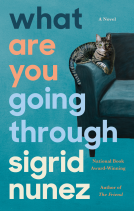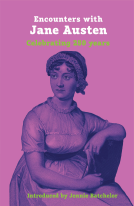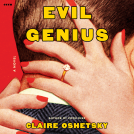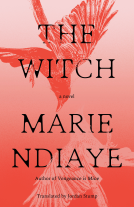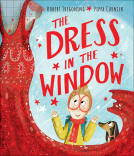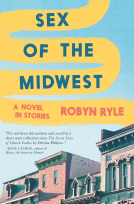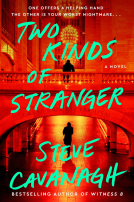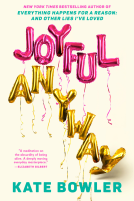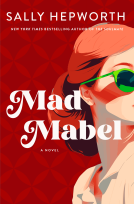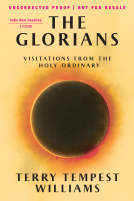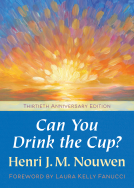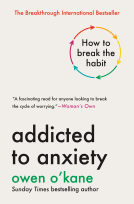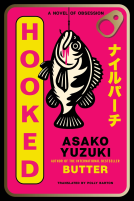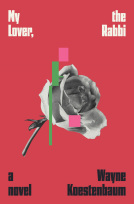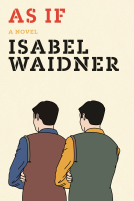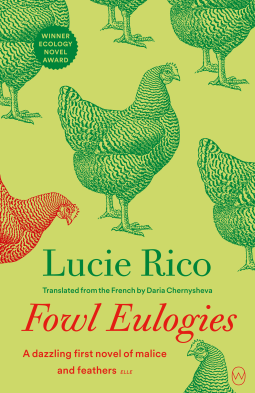
Fowl Eulogies
by Lucie Rico
This title was previously available on NetGalley and is now archived.
Send NetGalley books directly to your Kindle or Kindle app
1
To read on a Kindle or Kindle app, please add kindle@netgalley.com as an approved email address to receive files in your Amazon account. Click here for step-by-step instructions.
2
Also find your Kindle email address within your Amazon account, and enter it here.
Pub Date May 02 2023 | Archive Date May 02 2023
Talking about this book? Use #FowlEulogies #NetGalley. More hashtag tips!
Description
Fowl Eulogies is an absurd fairy tale for the ethical carnivore, fiction of perfect madness, of brutal and unprecedented humor. From the meadow to the supermarket, this dazzling first novel of mischief and feathers, brings to life the singular poetry of the industrial chicken.
Upon her mother’s death, Paule Rojas, a vegetarian city-dweller, returns to the chicken farm where she grew up. Pressured to fulfil her mother’s last request, Paule rediscovers pleasure and meaning in running the old family business. Yet, eager to bring something of herself to a family tradition, Paule embarks on increasingly intricate ways of helping the chickens to self-actualize before their deaths. She records the chickens’ life stories, adding them to the labels that decorate the vacuum-packed meat sent off to market—an individual biography for every chicken. But not all runs smooth in her childhood village; Paule finds she has few friends and many enemies. She is forced to spread her wings, relocate her livestock, and oversee the construction of an urban farm of never-before-seen practices and proportions.
Advance Praise
“This modern tale, a dazzling first novel of malice and feathers, hatches the unique poetry of the industrial chicken, innocent symbol of our anodyne lives, our shrink-wrapped lives—and you will never taste it again without sparing it a sincere thought.” ―Elle
Marketing Plan
- Fiction of perfect madness, of brutal and unprecedented humor ... From the meadow to the supermarket this modern tale, a dazzling first novel of mischief and feathers, brings to life the singular poetry of the industrial chicken
- Advance galleys and digital reader copies
- Digital assets including trailer & author video
- Signed book plates available
- National TV, radio, print, and online review campaign
- Consumer-facing national advertising campaign on Shelf Awareness, Lithub, NPR, Foreword Reviews, Goodreads
- Virtual or in-person author events
- Book club discussion guide
- Bookstore co-op available
- Excerpt placement
- Author active on Instagram
- Social media campaign & Goodreads Giveaway Advance reader and digital reader copies
Available Editions
| EDITION | Other Format |
| ISBN | 9781642861310 |
| PRICE | $17.99 (USD) |
| PAGES | 176 |
Available on NetGalley
Average rating from 30 members
Featured Reviews
 Educator 364311
Educator 364311
I loved this raw, humorous, heart-breaking, strange and brutal debut! At times cringe-worthy, morbid, and touching. The industrialized chicken has never been presented in quite this memorable way. Highly recommend for lovers of brave and brutal stories. Thank you to NetGalley for the gift of this ARC.
 Rachel C, Bookseller
Rachel C, Bookseller
A quick and interesting read about a woman who chooses to cope with the morality of killing chickens by writing them personalised eulogies. Absurd yet insightful, this chicken dystopia questions the ethics of industrialised farming and mass consumption. Perfect for fans of Sayaka Murata and Ottessa Moshfegh.
This is a book that I can best describe as quirky. It is about a vegetarian who returns to her hometown after the death of her mother, a chicken farmer and must begin running the family business. Needless to say, she runs into some ethical issues and develops a rather unusual way of coping with the business of the slaughter.
Thank you to NetGalley and the publisher for this ARC in exchange for an honest review.
 Maggie R, Educator
Maggie R, Educator
Humorous, horrifying and challenging all at once, Fowl Eulogies should make even the most devoted meat eater think twice. Lucie Rico has created an unlikely and at times unlikeable hero who finds the final solution to animal cruelty. Included is an off-kilter love affair - actually several if you count the chickens. You'll love it or hate it, but it's short and very well written, so might as well give it a go.
lucie rico’s “fowl eulogies” explores the relationship between those who farm and the animals they slaughter. when paule’s mother falls ill and passes away, paule is left in charge of a poultry farm with about three hundred chickens. she builds a relationship with each chicken, lovingly naming them and taking care of them. she notices things about them that other people don’t, and writes eulogies when they die naturally or are killed. paule sells them at a small market. when the opportunity comes to move the chickens to an industrial facility, paule agrees to it. this is the story of what happens when profits are put over the well-being of animals.
this novel struck a chord with me. i used to be an animal science major before i was an english major, and i switched because i could not handle exploiting animals for profit. industrial farming is absolutely horrendous, and the small farms you believe are organic are actually factory farms. watching paule lose her humanity and empathy was particularly heart wrenching. this is a phenomenal novel about not only the human psyche, but animal rights. the prose is extremely well written and the eulogies are poetic and emotionally driven.
thank you so much to netgalley and the publisher for this arc in exchange for an honest review!
Paule failed to give a eulogy for her mother. She wrote one for a one-eyed chicken instead: Theodore, the one she killed to honor her mother’s last wish. She will linger on the poultry farm, an old and unprofitable one that now belongs to her, trying to conquer something, she’s not clear what. But killing and selling Theodore is the first step. Then there are others whose eulogies are packaged with them and sold at the local market. The villagers aren’t pleased with Paule’s return or the eulogies. They will make this known in ways that are too threatening to ignore. She leaves the farm but will later question if someone else was behind the threats. Paule’s attachment to her roots, to the chickens, and to the need to honor their deaths will lead to an unraveling, an explosive twist that readers won’t see coming.
This debut novel by French writer Lucie Rico was awarded both the Ecology Prize and the Cheval Blanc Literary Award.
Thank you to World Editions and NetGalley for allowing me to read this eARC.
 Veerle V, Reviewer
Veerle V, Reviewer
There is no rulebook for grief. Vegetarian Paule returns to the village she grew up in when her mother dies. She continues her mother's chicken business after her mother asks her on her death bed to kill Théodore, the one-eyed chicken.
Paule develops a taste for killing her chickens after making sure they have a satisfying life on the farm in which they get the opportunity to self-actualise. To make up for slaughtering them, she writes beautiful and funny eulogies about who they were. Fernand, a businessman, discovers her at the market and convinces her to embark upon a journey of urban farming where the chickens will lead an equally blissful life.
But is the city a place where chickens can belong? And where does Paule belong? This is a book that will resonate with all of us who felt out of place in the countryside when growing up. This is a book about the struggle to reconcile your roots and your dreams of another life. Because your roots keep turning up.
I loved this book because it was absurd, funny and unsettling at the same time. You keep wondering whether Paule is okay, yet you’re laughing at the human level she’s interacting with the chickens. Those chickens even get a doll house I could only dream of as a child
I chuckled quite a bit with the eulogies. They were my favourite bits of the book. Lucie Rico is an excellent observer of chickens. My parents have always had 2 or 3 chickens and I could totally imagine one of the biographies was about one of them.
Thank you Net Galley and World Editions for this great book!
 Ruth A, Reviewer
Ruth A, Reviewer
A poignant tale of loss and coping, and also of becoming. Parts of this tale brought me back to farm life as a teenager and later as an adult. The wacky and offbeat eulogies for the chickens provide sparks of humor in the darkness where the story develops and it then bursts with brilliance! Dark and humorous, and, some will say, slightly macabre, this book will live on in the English translation!
 Reviewer 499835
Reviewer 499835
As someone who has spent a good deal of time with domesticated birds (in my case, racing pigeons) I loved the way Lucie Rico gave space for her protagonist Paule to delight in her chickens, to recognize each of them as individuals with their own personalities and quirks and delights, and to honor them for their unique contributions before she slaughters them for market. It's a confounding miracle to me that birds, and I imagine all living things to some extent, really do have their own individual ways of being in this world. Ok, I'm not sure about sheep. I hear they are a little one-note. But birds, yes. There is so much to enjoy in this novel for this reason alone, that it dares to suggest how creatures with bird-brains somehow have an individuated glorious uniqueness to be celebrated. I can imagine a god that has told birds each feather on their heads is counted. Rico takes this premise to the furthest possible, ridiculously dumbfounding extreme, and I was here for it.
 Elizabeth S, Bookseller
Elizabeth S, Bookseller
This is one of those weird-ish books that you'd recommend to people who loved Motherthing, or Big Swiss, or Hurricane Girl. Just a little off the wall but in a charming way.
 Andrija F, Educator
Andrija F, Educator
Soundtrack: Orion Rigel Dommisse - Chickens
I have been reading the novel from the point of view of the ahuman, as Patricia MacCormack would put it, which as a conceptual practice aims to liberate the animal from the human in absolute terms. Seen from that point of view, whether chickens are individualized (through naming, biography, eulogy) and supposedly properly "grown", or killed on an industrialized scale where individuality is a simulacrum as later in the novel, matters little. Both approaches are equally detrimental to the animal life, and only serve humans. The biting humor and oftentimes rather uncomfortable turns of phrase underline cul-de-sac of vegetarian/carnivorous dichotomy when faced with the real of animal exploitation. The dichotomy's all too human.
Readers who liked this book also liked:
Jennie Batchelor, Julia Quinn, Natalie Jenner, Charlie Lovett, Talulah Riley, Janet Todd et al
Essays & Collections, Novellas & Short Stories, Women's Fiction
Terry Tempest Williams
Biographies & Memoirs, Outdoors & Nature, Religion & Spirituality
